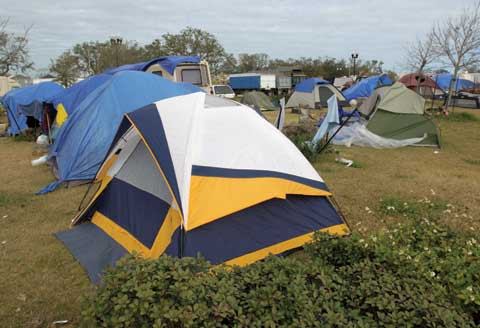‘One Body, One Spirit, One Hope’
Jim Kelly might as well be at the pulpit as he sermonizes eloquently about the need to create housing for New Orleans‘ poor, elderly, and disabled residents. Tall and confident, he has faith that New Orleans will rise again.
“There’s a line from Ephesians–one body, one spirit, one hope,” he says with conviction. “That’s what we need here. Affordable housing is in critical need if we’re going to truly re-inhabit our community.”
Kelly is CEO of Catholic Charities, the largest developer, owner, and manager of affordable multifamily housing in New Orleans. All of its 2,300 units were damaged; about 1,300 remained offline in January.
He preaches the gospel of mixed-income redevelopment to anyone who’ll listen, including Congress. “I don’t think anyone in our nation is going to say that having all poor people in the same neighborhood is going to be effective,” he says. “[Mixed-income housing is] the only way we can develop a true appreciation and respect for one another.”
It’s also good business. “If we don’t invest in a mixed-income model, you won’t have workers to run businesses, hotels, the convention center, restaurants, and normal everyday services our community needs,” he explains. “Mixed-income housing is for the health of the redevelopment. If you do all upscale, you will cut off your nose to spite your face. You won’t have the infrastructure that’s provided by people of all income ranges. If we don’t do it, we won’t recover.”
–Margot Carmichael Lester
